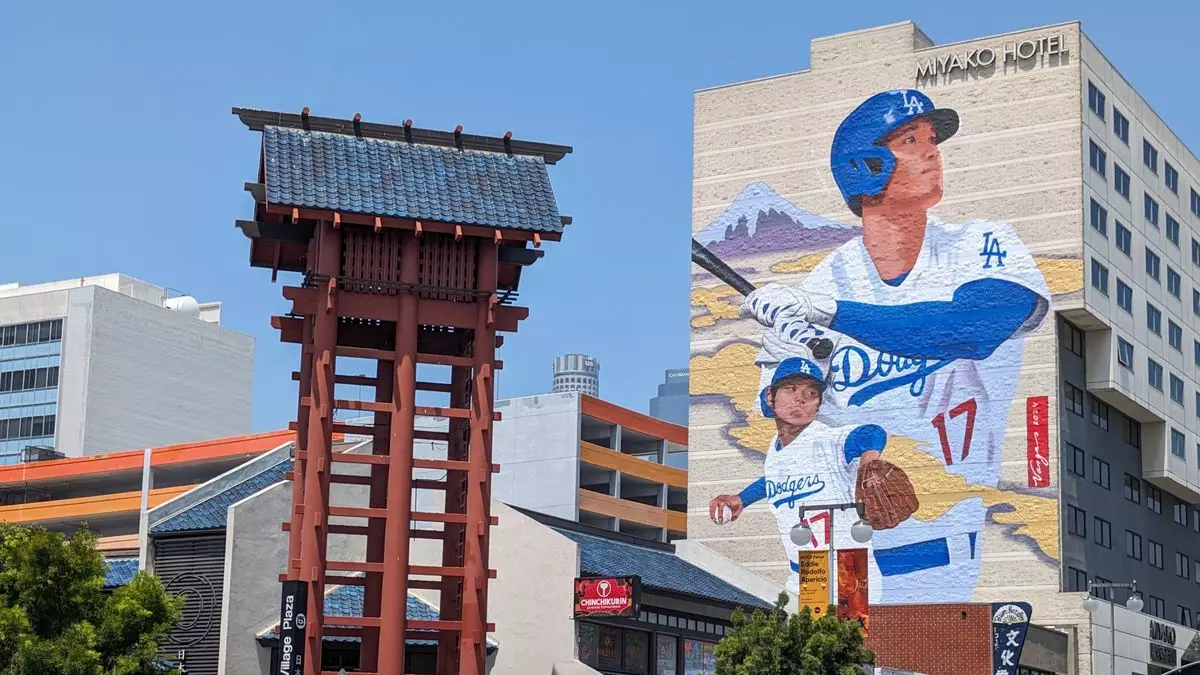Amid the raging wildfires sweeping across Los Angeles County, the hospitality sector is facing an unprecedented challenge. Hotels are not only tasked with the duty of providing emergency shelter for evacuees but are also committed to maintaining their business operations to ensure economic stability. In this climate of urgency and need, the Hotel Association of Los Angeles has emerged as a beacon of hope and resilience.
In dire situations like these, the dual role played by hotels becomes paramount. Jackie Filla, the CEO of the Hotel Association of Los Angeles, emphasizes that the hospitality industry is adept at balancing the immediate need for relief without losing sight of the long-term implications for the business landscape. “We can do both—one is not at the exclusion of the other,” she states confidently. This mindset reflects an industry culture deeply rooted in problem-solving and adaptability, especially during crises.
As of January 14, over 300 hotels throughout Los Angeles County and surrounding areas were reported to be offering discounted rates for individuals forced to flee their homes due to the fires. The altruism displayed by these establishments is commendable; many have waived additional costs such as pet fees and parking fees, showcasing a collective effort to mitigate the adverse effects of the disaster. According to Jeff Morris, the chief marketing officer for the West Hollywood Travel + Tourism Board, more than half of the city’s hotels have implemented significant discounts specifically designed to assist those affected. This proactive stance is not merely a business strategy but a demonstration of community solidarity in the face of adversity.
The response to the fires extended beyond Los Angeles itself, with hotels from neighboring cities like San Diego, Palm Springs, and even as far as Las Vegas contributing to relief efforts. Fred Tayco, the executive director of the San Diego County Lodging Association, highlighted that local hotels started accommodating L.A. evacuees almost immediately after the crisis began on January 7. “Our community knows how to respond to an emergency,” Tayco remarked. Their familiarity with these kinds of events has fostered a deep-seated resilience, allowing communities to come together and support those in need.
Filla pointed to existing initiatives, such as the Inside Safe program, which have successfully integrated hotel accommodations into solutions for housing needs in Los Angeles. This program serves not just as an immediate response to a disaster, but also as a long-term vision for addressing homelessness and housing insecurity. Yet, amidst these endeavors, retaining existing business remains critical. The lost revenue due to canceled meetings and events could exacerbate an already precarious economic situation for downtown businesses.
Tourism plays a vital role in Los Angeles County’s economy, and Filla emphasizes the need for visitors to maintain their plans: “We need people to come… don’t cancel your meetings, don’t cancel your business.” Such assurances are crucial for local businesses that rely heavily on tourism, particularly in light of major upcoming conferences and events set to take place in the city.
The Americas Lodging Investment Summit, including its associated events, is set to go ahead as planned at prominent hotels in downtown Los Angeles. Additionally, the Los Angeles Convention Center remains operational, with scheduled events continuing as intended. This unwavering commitment to hospitality demonstrates that while the fires rage outside, the city is also working tirelessly to maintain its reputation as a leading destination for business and tourism.
As the hospitality industry rallies to support evacuees, tourism leaders are acutely aware of the looming entertainment sector, an essential component of the region’s economy. The onset of ‘awards season’, featuring prestigious events like the Grammys and Oscars, presents an opportunity for Los Angeles to showcase its resilience and charm to visitors. Jeff Morris noted, “The entertainment business is really important and critical to West Hollywood,” underscoring the interconnectedness of hospitality and entertainment.
Los Angeles hotels are navigating a complex landscape as they provide vital emergency support to evacuees while also prioritizing their business operations. By embracing this dual purpose, the hospitality industry not only seeks to alleviate immediate suffering but also aims to bolster long-term recovery efforts. As communities come together, the strength and resolve of Los Angeles shine through, proving true resilience in the face of adversity.


Leave a Reply